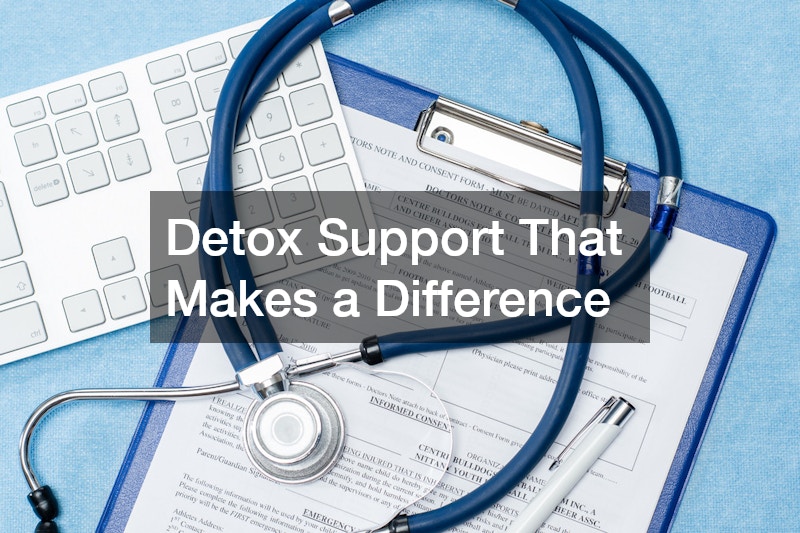Accessing reliable and high-quality medical care is one of the most crucial aspects of maintaining overall health and well-being. Whether you’re managing chronic health conditions or simply pursuing preventative care, knowing how and where to find the right healthcare services can drastically improve your quality of life. With rising healthcare costs, complex insurance systems, and the growing number of specialists available, it’s easy to feel overwhelmed. Fortunately, there are steps you can take to streamline the process and gain access to the care you need without unnecessary stress. The healthcare landscape is evolving, and navigating it efficiently means becoming familiar with various specialties, understanding insurance options, and knowing when to seek a doctor reference for more specific treatment. In this blog post, we’ll explore how to access the right care for a variety of needs—ranging from emergency treatment to long-term wellness solutions—while highlighting the importance of connecting with the right professionals and services through trusted guidance.
Pain Relief Starts With the Right Provider
Chronic pain affects millions of people around the world, often diminishing their ability to perform daily activities and enjoy life. One of the most effective approaches to handling persistent discomfort is through specialized pain management. This field of medicine focuses on assessing, diagnosing, and treating pain from a wide range of sources, such as musculoskeletal injuries, post-surgical pain, and nerve disorders. By working with a dedicated pain specialist, patients can receive tailored treatment plans that may include physical therapy, medication, injections, or alternative therapies like acupuncture or biofeedback. Accessing these services is easier when you have a doctor reference from your primary care physician, ensuring you connect with a professional who understands your unique medical history. Additionally, many pain clinics now offer telehealth consultations, which makes scheduling easier for those with limited mobility or busy schedules. The key is to find a practitioner who not only specializes in pain relief but also values a multidisciplinary approach, combining physical, emotional, and medical strategies to improve your quality of life holistically.
Detox Support That Makes a Difference

Substance dependency is a serious issue that can impact every aspect of a person’s health, from mental clarity to physical well-being. One essential part of recovery is connecting with a qualified doctor for detoxing who can guide patients through the withdrawal process safely and effectively. Detoxification isn’t just about flushing substances from the system; it’s a medically supervised process that may involve monitoring vital signs, managing withdrawal symptoms, and offering emotional support throughout. The best doctors in this field typically work in tandem with rehabilitation programs, mental health counselors, and supportive services to ensure long-term recovery success. Having a doctor reference from a general practitioner or counselor can help patients find a detox specialist who is experienced in their specific substance use case—whether that involves alcohol, opioids, or prescription medication. Comprehensive detox services may also include nutritional support and wellness planning, ensuring that the transition into sobriety is not only safe but sustainable. Early intervention and professional guidance are critical, especially for individuals facing dual diagnoses or co-occurring mental health disorders.
Getting the Tools You Need to Heal
Recovering from illness or surgery often requires more than medication and rest—it also involves access to appropriate medical equipment. From mobility aids like wheelchairs and walkers to home care essentials like oxygen tanks, hospital beds, or infusion pumps, medical tools play an indispensable role in healing and independence. Many people are surprised to learn that much of this equipment is covered by insurance with a proper doctor reference. This ensures that the equipment is not only suitable for the patient’s needs but also medically justified for coverage purposes. Working with a reputable supplier is crucial, as it guarantees the quality and safety of the products. Furthermore, many providers now offer delivery and setup services, along with training on how to use the devices correctly at home. It’s also important to consult with physical or occupational therapists during the recovery process, as they can offer insights on additional equipment or adjustments that may improve comfort and mobility.
Specialized Solutions for Circulatory Health

Many people experience discomfort, swelling, or unsightly veins in their legs without realizing they may be symptoms of a deeper vascular issue. Fortunately, varicose vein treatment is now more accessible than ever thanks to advances in minimally invasive procedures. These treatments can significantly reduce pain, improve appearance, and prevent complications like blood clots or skin ulcers. Typically performed by vascular surgeons with vascular specialization, the most common options include laser therapy, radiofrequency ablation, and sclerotherapy. These procedures often require little to no downtime, making them appealing to busy individuals. To find a trusted provider, a doctor reference from a primary care physician or general surgeon can be extremely helpful. This ensures that your provider is board-certified and experienced in treating complex vein conditions. In some cases, insurance companies may require a referral or a record of conservative treatment attempts before approving more advanced care, making the doctor reference an essential part of accessing services affordably.
Knowing When to Go to the ER
Sometimes, accessing quality care simply means knowing when not to wait. Emergency rooms are critical for addressing life-threatening or urgent medical issues that can’t be managed in a clinic setting. These include chest pain, stroke symptoms, broken bones, severe allergic reactions, or uncontrolled bleeding. Because ERs are open 24/7, they provide immediate access to physicians, surgeons, radiologists, and nurses with advanced training in acute care. However, because emergency services are often overwhelmed, it’s important to reserve them for true emergencies. For less severe issues, urgent care centers or telehealth services may offer faster treatment. That said, if you’re unsure whether an ER visit is warranted, it’s better to err on the side of caution. Having a prior doctor reference or medical history on file can also streamline intake and ensure more accurate treatment in an emergency. Keep a copy of your current medications, allergies, and recent medical procedures on hand to reduce delays and enhance your quality of care when seconds count.
Eye Health Beyond the Basics

Eye exams aren’t just about getting a new prescription for glasses or contacts—they’re an important aspect of preventative healthcare. Optometrists are healthcare professionals trained to detect vision issues, eye diseases, and sometimes even systemic health problems like diabetes or high blood pressure through a simple eye exam. For many people, especially children and seniors, regular visits to an optometrist are key to maintaining long-term vision health. While some may only need routine checkups, others might require more advanced interventions for conditions like glaucoma, cataracts, or macular degeneration. A doctor’s reference from your primary care provider or a specialist can guide you to an optometrist who fits your specific needs, especially if you’re dealing with complex or progressive conditions. Insurance coverage for eye care can vary, so it’s wise to confirm what is included in your plan. Many practices now offer flexible scheduling and digital imaging technologies to provide thorough care with minimal disruption to your daily life.
Long-Term Support for Cognitive Conditions
Families caring for elderly loved ones with Alzheimer’s or dementia often face the difficult decision of choosing the right living arrangement. A memory care facility provides specialized care designed to meet the unique needs of those suffering from cognitive impairments. These facilities offer structured routines, safety features, and staff trained specifically to manage behavioral challenges and memory loss. In addition to round-the-clock medical supervision, memory care environments often incorporate activities that stimulate cognitive function and encourage social interaction. Getting a doctor’s reference for placement into a memory care unit is typically required, ensuring that the patient’s needs are assessed and matched with the appropriate level of care. Financial planning and insurance options should also be discussed in advance, as memory care can be costly and is not always fully covered by Medicare or standard insurance plans. Touring multiple facilities and meeting the care teams can help families feel confident about their choice, knowing that their loved one will receive compassionate, specialized support.
Healthy Skin Is More Than Skin Deep

The skin is the body’s largest organ and often the first place where internal health issues show themselves. This is why regular visits to a dermatologist are important not just for cosmetic concerns, but for comprehensive skin health. Whether you’re managing acne, eczema, psoriasis, or monitoring moles for signs of skin cancer, a dermatologist provides targeted care tailored to your condition. Many people only seek out dermatology care when a problem becomes visually bothersome, but early detection and treatment can prevent more serious issues later. Obtaining a doctor reference can connect you with a board-certified dermatologist who specializes in your specific concerns, whether medical, surgical, or cosmetic. With the growth of tele-dermatology, some evaluations and follow-ups can now be done virtually, which enhances accessibility. It’s also worth noting that certain skin conditions may indicate autoimmune or systemic issues, underscoring the need for a holistic approach to treatment and ongoing monitoring by a skin care professional.
Residential Options for Aging in Comfort
As seniors age, some may find that they need more support with daily activities but do not require full-time nursing care. An assisted living community offers a middle ground, providing a safe, structured environment with services like medication management, housekeeping, and daily meals. Residents typically enjoy a high degree of independence while still having access to healthcare professionals and emergency assistance. Choosing the right assisted living community can be a life-enhancing decision, offering social engagement, security, and peace of mind for both residents and their families. Getting a doctor’s reference for this transition is often required, especially if the facility evaluates potential residents for specific medical or cognitive needs. Many communities offer tiered levels of service, so individuals can age in place and receive more care as their needs evolve. When touring potential homes, consider factors like staff-to-resident ratio, amenities, and community activities to ensure a good fit.
Navigating Coverage and Benefits
Understanding how health insurance works is one of the most vital steps in accessing quality medical care. From selecting the right plan to knowing which services are covered, patients often face a steep learning curve. Health insurance helps reduce the out-of-pocket cost of medical care, but navigating networks, deductibles, copays, and pre-authorization requirements can be daunting. Having a doctor reference can be instrumental in making sure your chosen provider is within the network, which is essential for minimizing costs. Additionally, many insurance plans require referrals from primary care providers before covering visits to specialists or advanced diagnostic tests. It’s beneficial to regularly review your coverage, especially if your medical needs or household size change. Utilize your insurer’s online portal or contact a plan representative to get clarity on covered services and estimated costs. Knowing your benefits also enables you to plan for elective procedures or preventative care that could save you money and improve your health long-term.
Accessing quality medical care doesn’t have to be a confusing or frustrating process. Whether you need immediate treatment or ongoing support for chronic conditions, the key lies in understanding your options and leveraging trusted professional networks. A doctor reference remains one of the most reliable tools for ensuring that you’re matched with the right specialists and services. From managing pain and detoxing safely to finding the right assisted living, a strong referral system saves time, reduces costs, and leads to better outcomes. Remember, healthcare is not one-size-fits-all. The more informed and proactive you are, the better your chances of receiving care that aligns with your needs, lifestyle, and financial situation.

